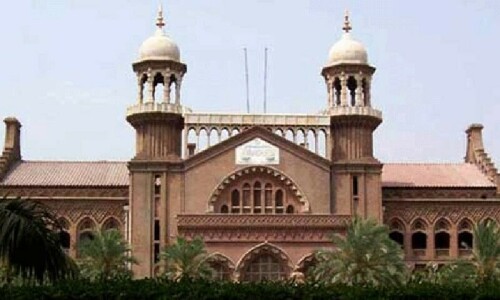India fears Taliban fallout in occupied Kashmir

As Prime Minister Narendra Modi set out his Taliban worries to world leaders this week, Indian forces staged raids and battled rebels in occupied Kashmir, who the premier fears could be emboldened by the Taliban's victory in Afghanistan.
Shootings of civilians and police in occupied Kashmir and raids by the security forces on rebels' hideouts have increased in the Muslim-majority region since the Taliban overran Kabul on August 15.
About 40 people have been killed in shootings and clashes in the two months since then in the Himalayan region.
Hindu and Sikh civilians have been shot dead in targeted killings, while gun battles near the ceasefire line have also left soldiers and rebels dead.
India has not openly blamed the Taliban takeover for the uptick in violence, but it has intensified patrols near Azad Kashmir and fortified some army camps, according to residents and security officials who spoke to AFP on condition of anonymity.
Modi told a G20 summit in Rome earlier this week that international efforts were needed to make sure Afghanistan does not become a safe haven for “radicalisation and terrorism”.
He has also raised India's concerns with US President Joe Biden.
Weapons and fighters
India was a backer of the Soviet-puppet government in Kabul that was overthrown by mujahideen forces in 1992.
In 2001, it helped the US-led forces that toppled the Taliban. And it was a major donor to the government that the Taliban crushed in August.
Afghan militants fought alongside Kashmir fighters in the 1980s and 1990s.
About 20 Afghan “guest mujahideen” were killed and 10 were captured, according to a former Kashmiri fighter.
India worries that weapons and fighters could again reach the region.
“What we can say and learn from the past is that when the previous Taliban regime was in power, that time definitely we had foreign terrorists of Afghan origin in Jammu and Kashmir,” said India's military chief of staff General MM Naravane.
“So there are reasons to believe that the same thing might happen once again.”
'Oxygen to our movement'
Protests are virtually impossible in occupied Kashmir because of restrictions imposed by Delhi since the region's semi-autonomous status was revoked in 2019.
But some in the valley have quietly welcomed the Taliban takeover of Afghanistan as a victory against the odds that they too can aspire to one day.
“If they can defeat the world's largest military power, we see a possibility that we, too, can win our freedom,” one businessman in the main Kashmir city of Srinagar told AFP, declining to be named.
A former Kashmir rebel who trained in Afghanistan in the 1990s and fought alongside Afghan mujahideen in Kashmir added: “The Taliban victory has already supplied oxygen to our movement.”
Given India's security clampdown on occupied Kashmir, Naravane and other military chiefs are confident that Delhi can cope with any surge.
But speaking on condition of anonymity, a senior security official in the valley said, “there is some panic” inside the security establishment.
Michael Kugelman, a South Asia specialist at the Wilson Centre in Washington, said Afghanistan's new rulers could inspire “stepped up unrest” in Kashmir.
Taliban officials have said they want to maintain trade and other ties with India, meaning that some kind of contact will have to be maintained.
Mosharraf Zaidi, a columnist and security analyst in Pakistan, said he saw no reason the Taliban would want to “deliberately agitate the Indian authorities”.
Their victory, he believes, is more important for the signal it sends to “young Kashmiri boys and girls watching the images from Afghanistan”.














































